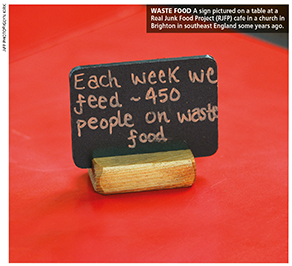CAPITALISM BARED
CAPITALISM IN MY GARDEN
BY Priyan Rajapaksa
As humankind grapples with the deadly novel coronavirus on the health front, another battle that’s not discussed as much as COVID-19 is gurgling beneath the surface of the pandemic and its resultant ‘new normal.’
 And that particular problem deals with how to allocate resources in a fair and equitable manner among the 7.8 billion people of the world. This issue is as old as humanity itself; it’s all about naked capitalism versus a more equitable distribution of resources.
And that particular problem deals with how to allocate resources in a fair and equitable manner among the 7.8 billion people of the world. This issue is as old as humanity itself; it’s all about naked capitalism versus a more equitable distribution of resources.
Having worked in the capitalist system for most of my life, I too was torn between the two systems. Should the powerful winners take the lion’s share and leave only the crumbs or should we actively reallocate wealth?
After returning to New Zealand at an older age without many prospects of employment and having to claw myself up to the surface, I’ve moved over to the redistribution camp. Maybe it’s a self-serving move but that’s what most humans exhibit in terms of behaviour.
A recent observation and experiment in my garden suggests that capitalism is what the animal kingdom is built on. I now work in small business accounting so my views are slanted towards SMEs.
In New Zealand, we are being guided towards reducing food waste as a result of charges for garbage collection moving to a weight-based system. As some waste is unavoidable, I thought it would be good to feed the many birds in our garden with whatever waste food they’d eat.
The four levels of enterprise in my garden include multinationals such as Amazon and Google, regional companies like Bunnings and Mitre 10, and large national organisations and SMEs (mom and pop).
Our visiting pukekos represent the multinationals, blackbirds symbolise the regional companies and mynahs are the large national businesses while sparrows signify the SMEs.
Sparrows visit our garden the most. They’re followed by blackbirds and mynahs. Pigeons do visit but they aren’t particularly welcome since they crap on everything. In spring, we have ducks as well.
The first few days of feeding were very subdued. However, within a few days the bush telegraph worked and the number of sparrows increased. This was like the many SME startups that soon get wind of any good opportunity and are there in a flash. The sparrows seem to be individualistic and show no sense of working together.
There had always been a solitary blackbird in our garden and after a few days, it joined the table but was outnumbered by the sparrows, which danced around its legs and ate the major share.
Soon, the blackbird had a few mates come over and after a while, they were muscling in on the food. They were like the mid-size enterprises that are the second level of business, which get in on market opportunities.
Being bigger, they were able to edge out the smaller players by blocking access to the food with their aggressive behaviour. But soon, the blackbirds faced competition from the mynahs that lived in the area but weren’t active in our garden until then.
In spite of being called a ‘whisky drinking socialist’ by a very close friend, I think socialism is in my genes – and I normally cheer for the underdog. So I had to do my ‘Dr. N. M. Perera act ‘to foil the capitalists and reduce the crowding out of SMEs by larger units.
The bird feeding was done before I left for work; so I didn’t have time to draw up policies.
Instead, I divided the market into two areas – viz. the left gatepost and the right gatepost. It wasn’t a perfect market anyway. There is a need for many buyers and sellers for the market to work efficiently, and supply was limited to my food waste.
Equilibrium was established for a few days until the arch capitalist arrived in the form of the pukeko. Now this bird is a proper capitalist that drives a flashy Lamborghini. It was big, brash and aggressive, and dressed in blue and black – it could have attended S. Thomas’!
It and its mate took over the food pile. One guarded while the other ate until they were both satiated and left the uninteresting stuff to the other birds. Which brings me back to the original question whether unbridled capitalism should be permitted to operate and exclude the smaller players in the market?
My belief is that though we pretend to be above animals, we’re much like them but with a strange desire to accumulate more than we can consume in a lifetime.
A millionaire I can understand… but a billionaire I can’t. What would one person do with so much wealth before it transforms into a curse like King Midas’ tragedy where his only daughter turned into a statue of gold?
In my youth, my father would read stories based on Greek mythology to me. And my mother always said that I should avoid two kinds of madness – salli pissuwa and palli pissuwa (money madness and religious madness).
I wonder whether billionaires read to their children… about Adam Smith and Milton Friedman.




Leave a comment